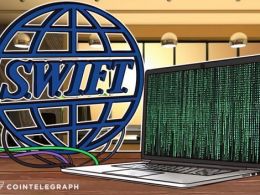
Fed Initially Blocked Bank of Bangladesh Swift Transfers
It will take several months, if not years, before all of the details regarding this Swift heist see the light of day. The story regarding the Bangladesh bank heist as part of an attack on the Swift payment network is far from over. As it turns out, the Federal Reserve blocked all 35 transactions executed by unknown assailants in February of 2016. However, four of those transfers got through after a second attempt, despite still being labeled as suspicious. Anonymous sources told Reuters how the Federal Reserve was intervening when the Bank of Bangladesh was dealing with a security breach.....
Related News
Following the cyber-heist that led to a loss of over $81 million earlier this year, the Central Bank of Bangladesh has successfully recovered a portion of the funds from a casino in the Philippines. The security issues affecting SWIFT interbank fund transfer network is well known. As both SWIFT and networked banks continue to trade blames, the recent cyber-attacks on multiple banks that led to losses of millions of dollars in fraudulent transactions is not lost on many of us. One of the target banks was the Central Bank of Bangladesh whose $81 million in funds were fraudulently transferred....
In what is becoming a grimly regular occurrence, SWIFT has confirmed further hacks to its member banks, with even more customer cash stolen. SWIFT: Threat ‘Persistent, Adaptive, Sophisticated’. The news, shared by SWIFT in a memo this week, follows several hacks this year, resulting in stolen funds. The first — and most high-profile — attack involved....
SWIFT, also known as the Society for Worldwide Interbank Financial Telecommunication, revealed that banks with weak security systems have been compromised by hackers after the US$81 million Bangladesh Bank heist in February. The organization disclosed in a private letter to customers that hackers from the Bangladesh Bank heist targeted banks with “lax security procedures” to successfully compromise user funds through sophisticated malware and hacking methods. "Customers’ environments have been compromised, and subsequent attempts (were) made to send fraudulent payment....
A full translation of the statement from the Bangladesh Bank has been added to the piece. The central bank of Bangladesh has issued a new statement suggesting that the use of digital currency is now illegal in the country. The Bangladesh Bank, as originally reported by the Agence France-Presse (AFP), has said that the use of bitcoin and other cryptocurrencies is unlawful under existing anti-money laundering (AML) statutes. The Bangladesh Bank noted in its advisory that harsh penalties could be imposed on those who use digital currencies, saying: "Bitcoin is not a legal tender of any....
The hacking heist of $81 million from the Bangladesh central bank demonstrates the vulnerability of many banks’ existing financial security platforms that cry for blockchain-based security. Investigators at BAE Systems, a U.K.-based defense contractor, believe the attackers hacked into the Society for Worldwide Interbank Financial Telecommunication (SWIFT) financial platform that provides the heart of the global financial system, Reuters reported. SWIFT confirmed it was aware of malware attacks on its client software. Natasha Deteran, a SWIFT spokeswoman, said the cooperative will release....





